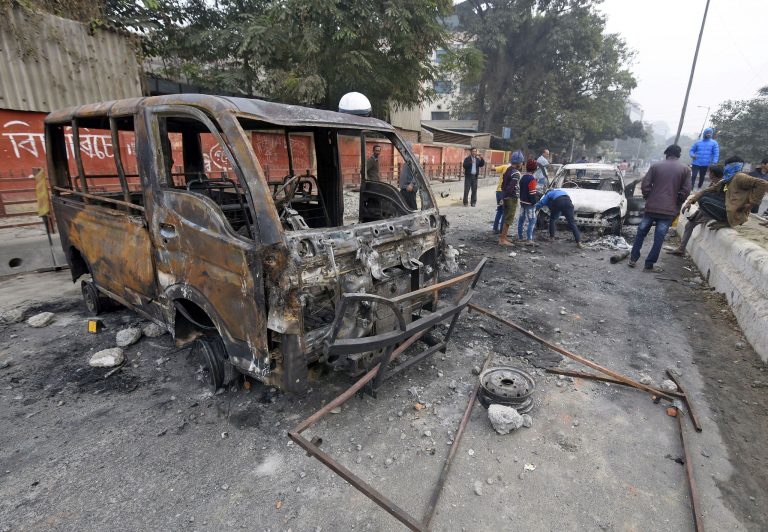
Indian President Ram Nath Kovind has signed the controversial citizenship amendment bill, enacting it into law despite widespread protests in the northeast region of the country wherein two persons were reported to be killed during the clash between police and protesters.
At least two people have been killed by gunshots and 11 others are injured in Assam’s main city of Guwahati as per reports by different media outlets.
Police on Thursday opened fire and tear gas shells in Guwahati, the capital city of Assam state, at protesters as the latter took to the streets defying a curfew imposed the previous day.
Protesters are of the view that granting citizenship to Hindus from Bangladesh and other neighboring countries will take away their local resources and opportunities as well as shed a dark light on their cultures.
The Citizenship Amendment Bill (CAB) which was passed on Wednesday by India’s Rajya Sabha (the parliament’s upper house) blocks naturalization for Muslims from neighboring countries – a fact critics say violates India’s secular constitution. As per the amendment, citizenship will be given to Hindus, Buddhists, Jains, Christians, Sikhs, and Parsis facing persecution in Pakistan, Bangladesh and Afghanistan.
Many critics have claimed that the newly enacted law violates the spirit of India’s constitution, calling the CAB a ‘fundamentally unconstitutional’ law.
Kirti Singh, a human rights lawyer at India’s Supreme Court, was quoted saying to Al Jazeera that the law goes against Article 14, which is the right to equality, and Article 15, which is the right not to be discriminated against on the grounds of religion and sex.
Meanwhile, Japan’s Prime Minister Shinzo Abe’s visit to Assam has been postponed as protests flared up in the region.
Japanese Prime Minister Abe was originally planned to visit Assam on December 15-17 to participate in an annual summit as a part of Indian Prime Minister Narendra Modi’s campaign to move high-profile diplomatic events outside Delhi, to showcase the country’s diversity.





